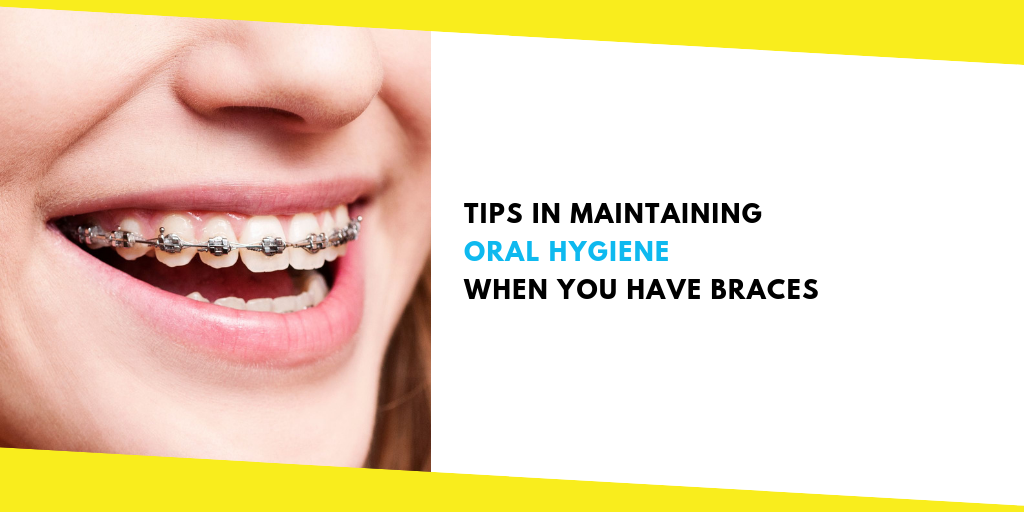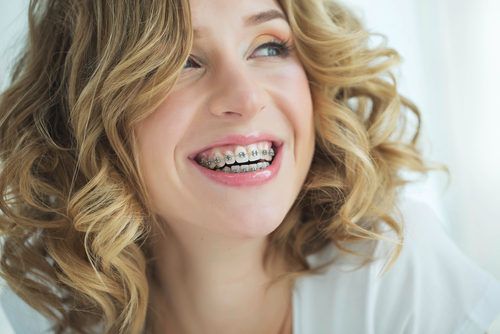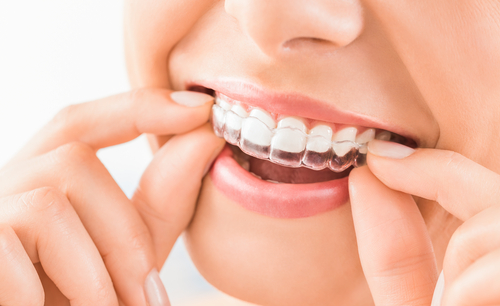Tips in Maintaining Oral Hygiene When You Have Braces
This post was last updated on February 12th, 2024

Do you remember your first trip to an orthodontist? You’ve probably experienced a mixture of dread and excitement like most people. Believe it or not, it is only a small price to pay for the numerous physical and psychological health benefits you can happily reap later on.
What are braces, anyway?
Dental braces are generally known as tools used to straighten crooked teeth. Traditionally, orthodontists use a metallic wire anchored on hooks and brackets to realign the teeth. However, some may find it unsightly, intrusive, and annoying to some extent, given how it gives the teeth a dirty look.
Thanks to technology, you can now choose a variety of braces that are less noticeable and more comfortable and can speed up the treatment process. The most popular alternatives to metal wire braces include:
- Ceramic braces, which have a similar texture and color as your teeth
- Lingual braces, which are attached to the inside of your teeth so they are invisible from the outside
- Invisalign braces, which are invisible and can be easily removed when cleaning your teeth
- Self-ligating braces, which are secured with clips instead of rubber bands so there are lesser chances of food getting stuck in your braces
Why should you consider getting braces?

A set of white, straight, and even teeth will definitely make you have that picture-perfect smile, but it is only a drop in its bucket of benefits.
Braces help prevent mouth problems. Crooked and uneven teeth are much harder to brush and floss than straight and perfectly aligned teeth. When you fail to brush away the remnants of food from your teeth, you are at risk of suffering from gum disease, cavities, and tooth decay. Braces help to even out the spaces between your teeth so that cleaning them will be easier.
Braces aid in digestion. Your mouth does the first step in your body’s digestion process. When your teeth are nicely aligned, you can chew your food better, leading to better digestion.
Braces can improve your speech. Poor teeth alignment can affect the way you pronounce certain words. Correcting your teeth with braces can consequently improve the way you speak.
Braces can boost your self-esteem. Correcting the alignment of your teeth will realign your jaw at the same time. This can even improve the appearance and proportion of your face. Additionally, owing to its aesthetic benefits, having a perfect smile can definitely boost your self-esteem.
How do you maintain oral hygiene when you have braces?

While the aftereffects of wearing dental braces are very promising, you have to remember that you will spend months or even years of your life wearing braces before you can complete the treatment. In fact, an average adult treatment takes 18 months to 3 years.
While you’re at it, you should keep the following tips in mind when maintaining your oral hygiene:
- Watch your diet. When you have braces, you have to be careful when eating sticky and hard foods as they might get caught in between your braces, loosen the brackets, and break the wire. You should also minimize your intake of starchy and sweet foods as they promote plaque buildup around the brackets, resulting in teeth staining.
- Brush your teeth. No, not just twice a day. When you have braces, you need to brush your teeth after every meal and that includes after snacking on chips. Food particles can be easily trapped on braces, no matter what time of braces you wear. This can increase your risk of developing gum disease if not cleaned properly.
- Use a toothbrush with soft bristles, which are flexible and can easily reach the spaces between your teeth and your braces. Rinse your mouth properly before brushing to loosen the food particles stuck in between your teeth and braces. Holding your brush at a 45° angle, start brushing your gum line, each tooth, the top of the brackets, and the bottom of the brackets. Rinse your mouth well.
- Floss once a day, at the very least. Floss not only between your teeth but also under the wires and between the braces. Use a waxed floss as it is easier to use and can slide easily between your teeth. Floss thoroughly and longer than when you were braces-free.
- Never skip on checkups. You need to visit your orthodontist for scheduled appliance adjustments. It is expected that you might experience some tightness and pain after adjustments have been made. If you are experiencing problems concerning your braces, never hesitate to bring it up to your orthodontist’s attention.
- Visit your dentist, even when you’re seeing an orthodontist. You still need to have your routine dental checkups to make sure that you are free from dental caries, tooth decay, and gum disease.
Why should you seek a professional’s help?
Some braces come affordable but there are also some that don’t come at a cheap price. Never make the mistake, however, of applying DIY braces on yourself as these can ruin your teeth and gums. Always avail the services of a professional orthodontist and go for Dental Braces Oshawa services when it comes to braces.
If you are not sure where to look, you can search for dental marketing services online to find a dentist and orthodontist near you. Websites list various dentistry and orthodontist services for kids and adults alike. Professional dentists and orthodontists take their job very seriously so that each treatment is centered on the personal needs of their clients.
Oral hygiene is extremely important, most especially because you can no longer replace your permanent teeth with new ones, except with dentures. Follow these very easy tips during your treatment and you will reap the benefits listed above when you are finally braces-free.
Recommended For You
12 Proven Tips To Get Complete Restful Sleep Every Night
Most Inside
Most Inside offers high-quality recommendations and valuable updates to enhance all aspects of your life, providing premium guidance and enriching experiences.




